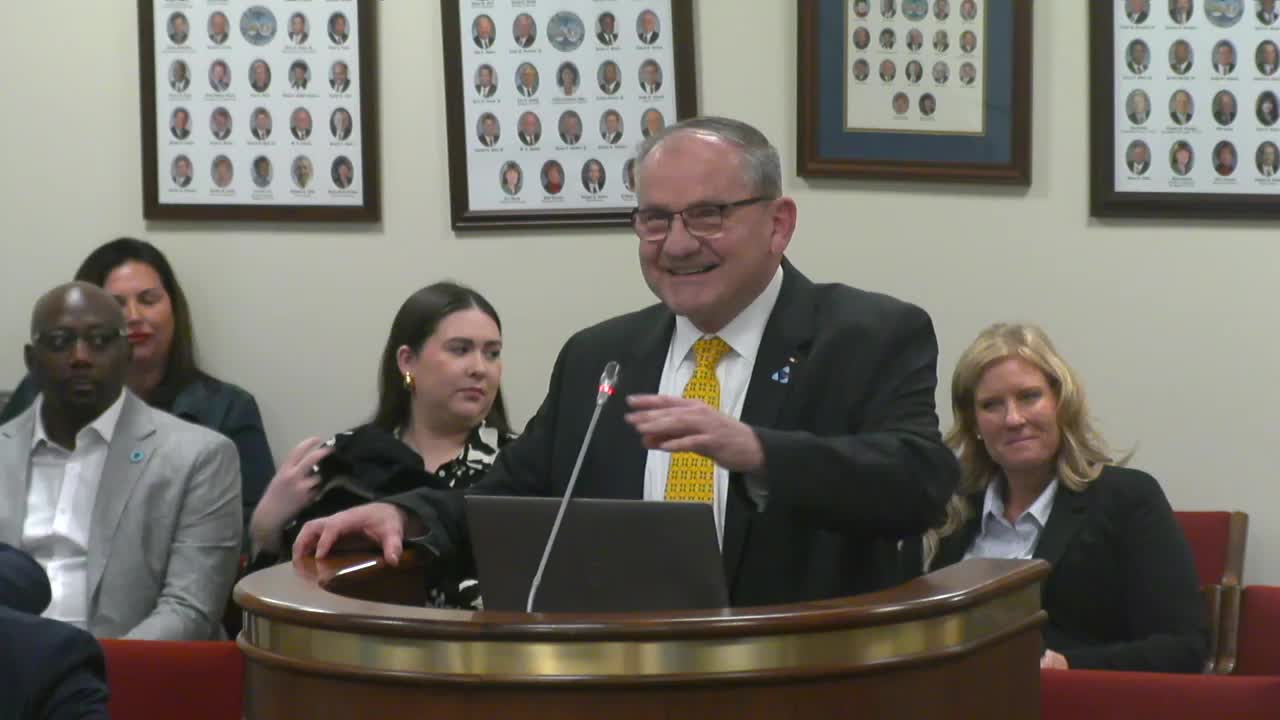DMV director urges modernization, warns of Real ID deadline and staff shortages
Get AI-powered insights, summaries, and transcripts
Subscribe
Summary
Kevin Shweto, executive director of the South Carolina Department of Motor Vehicles, told the committee the DMV needs a modernized system (~$100M), flagged high turnover and staffing pressures, said 60% of state residents hold Real ID and warned Real ID enforcement will limit air travel access without a compliant credential.
Kevin Shweto, executive director of the South Carolina Department of Motor Vehicles, told the House Education and Public Works Committee the DMV faces workforce pressures, aging technology and near-term compliance demands tied to Real ID enforcement.
Shweto said the DMV’s current core system (known in testimony as "Phoenix") is legacy software that predates the 2000s and relies on COBOL programmers; he estimated the agency needs about $100 million to modernize its systems and warned that attempts to replace such systems have failed in other states. “If you don’t get me a modernized system, and it breaks, not only will the DMV be impacted, every cop that needs it for visibility of who's on the highway with bad guys shuts down,” Shweto said.
He described workforce pressures: the DMV has grown alongside state population increases but has not seen commensurate staffing adjustments, he said. The agency’s workforce is predominantly female (87% in his description), about 51% African American, and a sizable share are single-parent households; he reported about a 33% annual turnover (roughly 500 of 1,500 employees) and said pay erosion from inflation has reduced buying power since earlier raises.
Shweto emphasized identity and Real ID compliance: he said about 60% of the state currently hold Real ID-compliant credentials and warned that by a federal enforcement date travelers without Real ID will need passports to board aircraft or access certain federal facilities. “If you don't have your Real ID, you're making a real mistake…You will not get on an airplane on July,” he said, urging legislators to encourage constituents to secure compliant credentials.
Other issues Shweto raised included: the DMV’s centralized issuance plan (planned for September in his testimony) that will send replacement cards by mail rather than issue on demand at all offices; a plan to explore mobile driver’s licenses and biometrics in a modern system; and concerns over licensing and safety when vehicle classifications deviate from manufacturer limits. He also outlined the DMV’s role in handling 444 distinct legally required transaction types and the training burden that follows high turnover.
Committee members asked about DUI statistics, manpower for school resource officers, and real-ID privacy concerns; Shweto said first-time DUI arrests historically average around 25,000 per year and stressed that modernization and workforce funding are priorities to maintain service and security. He offered committee members his contact card and urged legislators to raise the DMV modernization issue during budget deliberations.
Less-critical details: Shweto described the DMV’s weekly one-hour trainings, his statewide site visits to all 66 offices, and centralization steps the agency plans to increase card security and reduce fraud.
